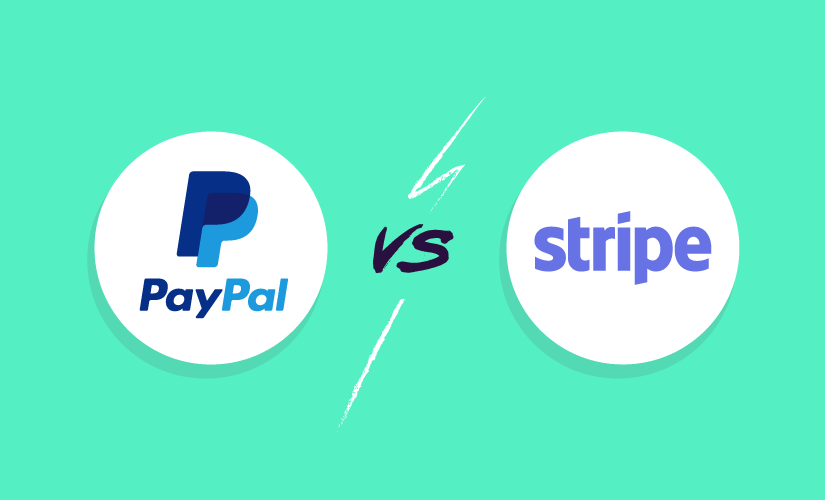5 Key Reasons Why PayPal and Stripe Limit Seller Accounts
What Are PayPal and Stripe?

PayPal and Stripe are the most widely used online payment platforms globally. They enable seamless transactions between buyers and sellers, providing security, ease of use, and global accessibility. However, despite their many advantages, sellers—especially those running small or medium-sized businesses—often encounter account limitations. This challenge can hinder operations and disrupt business flow.
Understanding why these platforms limit accounts and how to mitigate such risks is crucial for any seller operating in the e-commerce space.
Common Reasons for Account Limitations
- For Newly Opened Accounts
1. Verification Requirements
PayPal, in particular, has strict verification processes to ensure that new accounts are legitimate. This often includes providing tracking numbers, ID documents, and other proofs to confirm you’re not a “non-shipping seller.” This policy stems from increased scams involving non-shipping sellers, leading PayPal to adopt stricter measures.
2. Incomplete Setup
If your account setup is incomplete—such as missing personal or business verification or failing to submit U.S. tax information under FATCA compliance—your account could be flagged.
3. Negative Associations
PayPal and Stripe often analyze an account’s history. If there’s any association with accounts or businesses flagged for misconduct, your new account might be limited as a precautionary measure.
4. Poor Timing
Sometimes, it’s simply bad luck. Opening an account during heightened security reviews—such as high sales seasons or after reports of widespread fraud—can lead to immediate limitations, even if you haven’t done anything wrong.
- For Established Accounts
1. High Refund or Chargeback Rates
Both platforms closely monitor refund and chargeback ratios. Generally, maintaining a ratio below 1% is considered safe. Exceeding this threshold, especially during peak sales seasons, can result in immediate account closure or increased fees for dispute resolution. Stripe tends to be stricter in this regard than PayPal.
2. Sudden Sales Spikes or Changes
Abrupt increases or decreases in sales or shifts in product types can raise red flags. For example, during holiday seasons or promotional events, unexpected changes in transaction volume might lead to account reviews or limitations.
3. Reserves and Holds
PayPal might impose reserves or holds on your account if they detect any unusual activity. This often comes with additional requests for documentation to verify your account’s legitimacy.
4. Trademark or Legal Issues
If your account is reported for selling trademarked items without proper authorization or if a legal complaint is filed against you, PayPal and Stripe may limit your account until the issue is resolved. Resolving these cases often requires legal assistance, which can be time-consuming and costly.

Consequences of Account Limitations
- Business Disruption
When your account is limited, you lose access to essential functions like receiving payments, issuing refunds, or making transfers. For small businesses, this can halt operations entirely, leading to missed opportunities and lost revenue.
- Damage to Reputation
An account limitation doesn’t just affect your internal operations—it can also harm your reputation. Customers may lose trust in your brand if they encounter issues with payments or refund delays, leading to decreased sales.
- Financial Challenges
Resolving account limitations often involves time, effort, and additional costs. This can disrupt cash flow, delay critical payments, and increase financial stress for sellers.
How to Avoid Account Limitations

- Provide Complete and Accurate Information
Transparency is key. Ensure your business and personal details are accurate, complete, and up to date on PayPal and Stripe. This builds trust and reduces the likelihood of red flags.
- Monitor Refund and Chargeback Rates
Keep your refund and chargeback rates as low as possible. Communicate clearly with customers, provide accurate product descriptions, and ensure timely delivery to minimize disputes.
- Maintain a Stable Transaction Flow
Avoid sudden spikes or dips in sales. Inform the payment platform in advance if you anticipate significant changes—such as during a major promotional event.
- Comply with Legal and Tax Requirements
Ensure you’re compliant with all legal and tax regulations in your operating regions. This includes addressing trademark issues, registering your business appropriately, and submitting required tax documents.
How Hacecommerce Can Help
Navigating the challenges of payment gateway limitations can be overwhelming, especially for new sellers. That’s where Hacecommerce comes in. We offer comprehensive services to help you succeed:
- Complete PayPal and Stripe Setup: We handle everything from registration and verification to linking bank accounts, ensuring your account is fully compliant.
- Account Management Support: From answering review questions to managing disputes, we provide monthly support to keep your account in good standing.
- Paypal accounts rental services: For those needing immediate solutions, our safe and ready-to-use payment gateways allow you to continue operations without disruptions.
Final Thoughts
Account limitations are a necessary measure employed by PayPal and Stripe to reduce fraud and mitigate financial risks. However, these limitations can cause sellers significant challenges, from business disruptions to damaged reputations.
Understanding the reasons behind these limitations and taking proactive steps to mitigate risks is essential for smooth e-commerce operations.
If you’re building your POD empire or scaling your e-commerce business, consider partnering with Hacecommerce. Our services—from payment gateway rentals to graphic design and virtual assistant support—are tailored to help you succeed.

